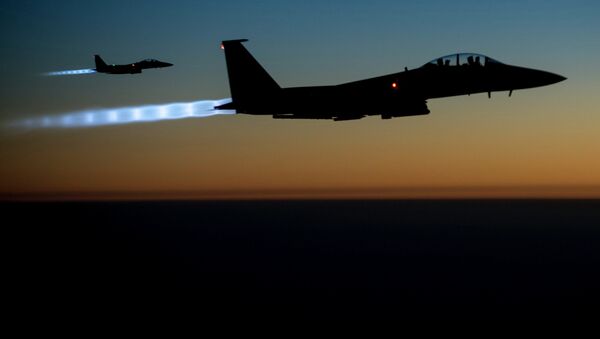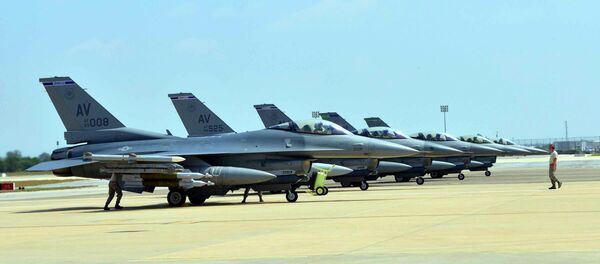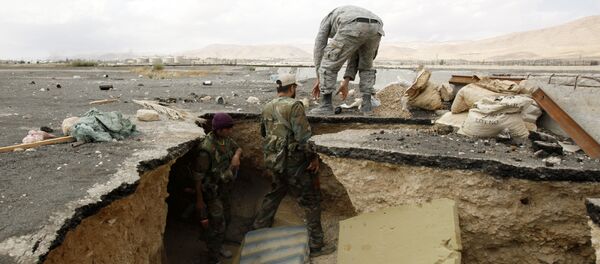Since the US began military operations in Syria, the Pentagon’s strategy has been to kill every individual associated with the Daesh terrorist group, also known as IS/the Islamic State.
"If you’re part of ISIL, we will kill you. That’s our rule," Col. Steve Warren, spokesman for Operation Inherent Resolve, told reporters earlier this week.
Most importantly for the Obama administration, US strategists have assured the public that their goals can be accomplished with nothing more than an air campaign. This allows the president to continue to push for the ouster of Syrian President Bashar al-Assad, rather than accept ground coordination from the legitimate Syrian army, and keep his pledge of keeping US boots off the ground in the Middle East.
President Obama recently announced the deployment of US Special Forces into Syria, but prefers not to officially describe that action as "combat."
But despite the Pentagon’s claims of success, a cursory look at the numbers proves that US airstrikes have had little – if any – effect.
At the start of the campaign in 2014, the CIA provided an estimate for the size of Daesh’s fighting force.
"[The terror group] can muster between 20,000 and 31,500 fighters across Iraq and Syria," a CIA spokesman told CNN.
In November, an anonymous official speaking to USA Today claimed that the air campaign had killed approximately 23,000 Daesh fighters. According to a press briefing given by Army Col. Steve Warren on Wednesday, another 2,500 militants were killed in December.
So, good news! According to these numbers, the US bombing campaign has almost single-handedly eliminated Daesh, leaving only a few thousand terrorists scattered across the desert. With any luck, Daesh will be little more than a distant memory come Valentine’s Day.
But during the same briefing, Warren also gave reporters an updated assessment of the terror group. How many militants does the Pentagon believe to be currently fighting with Daesh? Around 30,000.
As Micah Zenko points out, writing for Defense One, this mathematical inconsistency can be partially explained by the fact that Western airstrikes can ultimately be turned into recruiting tools for terrorist groups – a fact overlooked by the Pentagon.
"I often ask US government officials and mid-level staffers, 'what are you doing to prevent a neutral person from becoming a terrorist?' They always claim this is not their responsibility," he writes.
"DOS and DHS officials then refer generally to 'countering violent extremism' policies, while acknowledging that US government efforts on this front have been wholly ineffective."
Whatever the cause, Daesh appears just as strong, 22,110 bombs later.





